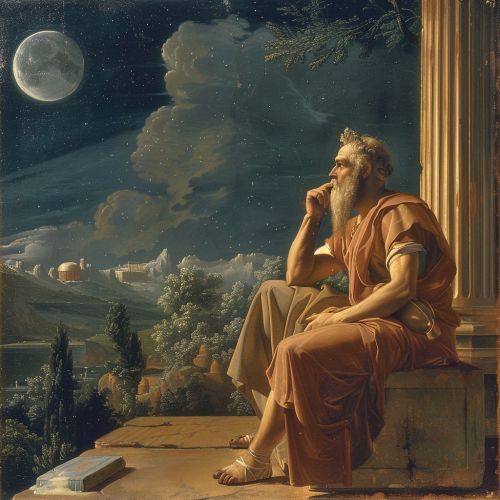Philosophy of Space and Time
Introduction
The philosophy of space and time is a branch of philosophy that deals with issues surrounding the ontology, epistemology, and character of space and time. This discipline is an ancient philosophy, dating back to the times of the early Greek philosophers like Parmenides and Heraclitus, who proposed contrasting theories about the nature of time and space.
Historical Overview
The earliest recorded philosophy of time was expounded by the ancient Sumerians, who regarded time as a linear progression of distinct events, a concept that is foundational to our modern understanding of time. The ancient Greeks, on the other hand, had two distinct words for time: chronos, which refers to chronological or sequential time, and kairos, which signifies a proper or opportune time for action.


The pre-Socratic philosophers, starting with Thales, regarded space as the infinite void, and time as an eternal, unchanging cycle. Parmenides famously denied the existence of motion, change, and time, while Zeno of Elea proposed several paradoxes that challenge our intuitive understanding of space and time.
Ontology of Space and Time
The ontology of space and time is the philosophical study of the nature and properties of space and time. It is closely related to a number of other philosophical disciplines, including metaphysics, epistemology, and philosophy of science.
The ontology of space and time can be divided into two main theories: substantivalism and relationism. Substantivalism is the theory that space and time exist independently of objects and events. Relationism, on the other hand, is the theory that space and time are only systems of relations among objects and events.
Epistemology of Space and Time
The epistemology of space and time is concerned with the knowledge of space and time. It deals with questions such as: How do we know about space and time? What is the relationship between our perception of space and time and the reality of space and time?
There are two main theories in the epistemology of space and time: empiricism and rationalism. Empiricism is the theory that our knowledge of space and time comes from sensory experience. Rationalism, on the other hand, is the theory that our knowledge of space and time comes from reason and logical inference.
Time in Philosophy
Time has been a central topic in philosophy since its inception. The nature of time, the existence of the future, the reality of the past, and the concept of the present moment are all subjects of ongoing philosophical debate.
There are two main theories of time in philosophy: presentism and eternalism. Presentism is the theory that only the present moment exists. Eternalism, on the other hand, is the theory that all points in time are equally real, and that the passage of time is an illusion.
Space in Philosophy
Like time, space has been a central topic in philosophy. The nature of space, the relationship between objects and space, and the concept of empty space are all subjects of ongoing philosophical debate.
There are two main theories of space in philosophy: absolutism and relationalism. Absolutism is the theory that space exists independently of objects. Relationalism, on the other hand, is the theory that space is a system of relations among objects.
